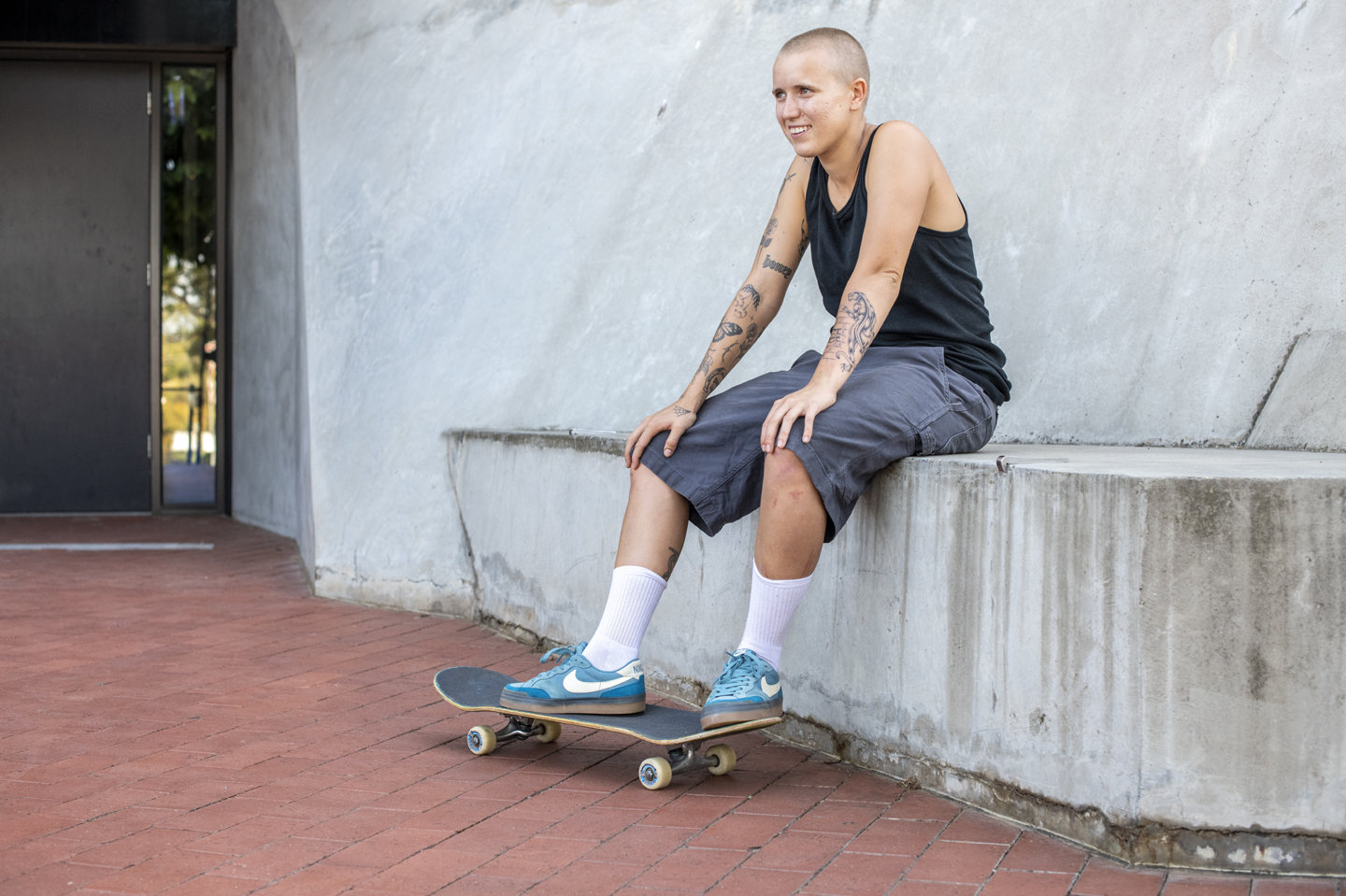
Hayley Wilson
John Rattray sits down with Hayley Wilson.
So, first, what's been your experience? What's Hayley's experience of this topic we call ‘Mental Health’?
John Rattray:
When it comes to this thing we call, ‘mental health’, I'm interested in the questions, ‘What do we know about this subject? What do we feel about it?’, and especially interested in how each of us manage our own stuff. And first, it’s worth acknowledging, this can be a difficult subject to talk about. It can be uncomfortable. This weird, hard-to-grasp thing called emotions.
Is it difficult for you to talk about this subject? Why do you think that is?
Hayley Wilson:
I think at times it can be difficult. Just because it is scary, or it can be triggering for some people, maybe including myself. But I think it's important to be able to talk about it, because it opens it up for everyone.
There are a lot of people out there that feel like they can't and feel like it’s weak. I think it's so important for us to have these conversations.
John:
Two things you said there: that people think they can’t, because they think it's ‘weak’. And then you said ‘triggering’. I've heard this word a lot lately. It means it triggers a strong emotional response, maybe fear or anxiety. And I sometimes think we need to feel those feelings, and being triggered is okay. But it's like, the next step is dealing with it and understanding, ‘Okay, why am I feeling this way? Where is it coming from?’ And so, I think that there's an important part of leaning into that and being okay with talking it through.
And then the thing you said about people think it's weak. Do you think it's different in Australia versus America?
Hayley:
I don't know if it's different. In skating I've felt that it's not as common to speak up than in other aspects of life.
Maybe it’s people…they're scared because they don't want to be looked at differently, or they don't want to be looked at as weak. But I think it's stronger to speak out.
John:
I agree. That leads to this point that we've all experienced mental health challenges, and even crisis, or we know somebody who has. I know you stepped back from the Olympics, stating that it was something you felt you had to do for your mental health. I just read that on your Instagram. I was inspired. Thank you for just stating it and taking the action there.
Hayley:
I grew up skating contests. I thought that was the only way to make money, or to make it in skating. Make a name for yourself. And then the Olympics got introduced, and it was all exciting. And then the lead in, before we knew about Covid, the year lead in, that was really stressful for me, because it was just contest after contest. I think I went to five different continents in three months. So, it was a lot of travel, and it just made me so tired and kind of not stoked on skating because it felt like it was just repeating itself.
2019 was a good year for me—contest-wise—but then I got to the end of it and was so tired. Then in 2020, Covid hit and then [the Olympics] getting cancelled.
Obviously Covid happening I wasn't stoked because we were all locked up, but Olympics got canceled, and I was super stoked on that because I needed a break.
I was so exhausted; I wasn't bummed that happened.
Heading into 2021, that's when it started to get serious again, and then my mental health just deteriorated from there.
“Olympics got cancelled, and I was super stoked on that because I needed a break. I was so exhausted; I wasn't bummed that happened.”
I felt like I needed to do this because everyone said, “Well, you're going to miss out on this opportunity!” when, in fact, I didn't care. I didn't really care about the Olympics in a way.
Just because the lead in was so tough and mentally fatiguing.
Going into the Olympics, I wasn't hyped on it, but I felt like I had to do it for other people. And that's where it started with my mental health deteriorating because I was doing it for someone else, not for myself.
So, when all the Olympic stuff finished, I tried to do contests again, and it was the same feelings: anxious, tired, stressed. My whole body was tense the whole time.
And that's when I decided to stop. That was probably the best decision I've made in a long time. To do something for myself. All the stress just went away, and that's when I started skating for myself again.
“That was probably the best decision I've made in a long time. To do something for myself.”
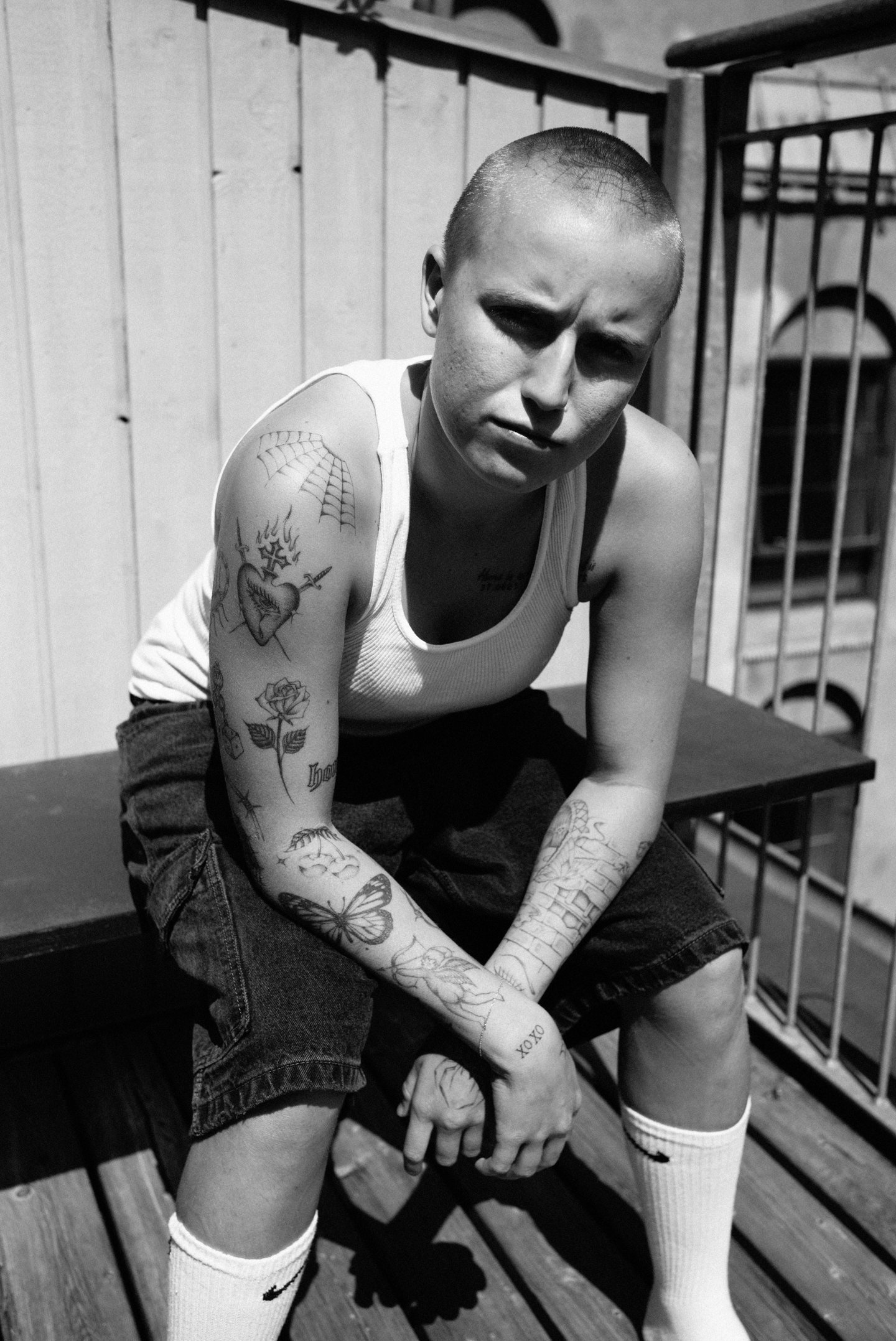
John:
That's awesome you made that decision. You managed to get to that point. It can be difficult. When you feel all that pressure, that obligation, to please other people.
Hayley:
I thought doing that. I was waiting for backlash, “Why are you doing that? That’s such an amazing opportunity!” But not one person said anything like that. It was more, “That's so amazing” and “good on you for standing up for yourself and standing up for your mental health.” I was proud of myself.
John:
That's amazing. And interesting it went that way. And you had those thoughts, that fear, before you did it of, ‘Oh, what are people going to say?’ But then to go through with it you realize people are actually supportive.
Hayley:
Yeah, all the Olympic stuff was really good in some respects, but then it came to my mental health, and that's when I began to think, ‘Do I want to skate anymore?’
It's sad to think that I was inches away from quitting something that I've been doing for the last fifteen years of my life. It was the hardest thing that I probably ever been through. But the fact that I came out the other side is amazing.
John:
You mentioned there was the thought of ‘What are people going to say? What's going to be the backlash?’ Was there anything else you can remember that describes what it was like?
Hayley:
It took a year to do it, because the Olympics finished July ‘21. When I made the decision, I think it was around August, so it was a year after the Olympics. It took that long for me to decide. Because I was more worried about other people's opinions when I shouldn't have. But I needed to go through the process and make sure.
I went to Italy for the first Olympic qualifier, and nothing went right. I lost all my bags. All my boards were in there. I lost everything, and I had nothing for the contest. So, it started off rocky. Then I got a board, but it was a Christmas complete—everything was brand new—and then I tried skating. I was emotional by this point; just not having it. I tried skating the course once and nothing felt right. So I decided I have to pull out; there's no way that I’m going to be able to do this.
I was like, “Maybe this is a sign. Maybe I shouldn't do these contests because it's obvious I'm not having fun. All these skaters look like they’re having fun, but I’m not. I don't feel that, and I don't want to give off the energy of, ‘I don't want to be here,’ because people are doing this for themselves, and they don't want that negative energy.
After that, being in the States, filming and shooting photos, I just decided that's what I want to do, and that's what's making me happy at this point.
John:
That's good that you go to that place where you found a new spark and getting out there and just shooting photos and getting clips. I always loved that, too. It's rad. It can get a bit much, too, if you don't look after yourself and have those boundaries. I had to learn where those parameters are.
Hayley:
It’s taught me that you don't have to do all this stuff at once. You've got so many years in your life; you can space it out.
John:
You described it where you were even considering, ‘Do I even want to skate anymore? Is this even something I want to do?’
When I think about skating, and all the friends I've made over the years, skating itself has helped me through so many tough times. Connection to community is a big protective factor when it comes to mental health and activity itself can help us regulate our emotions. So, I wonder, has skating been that thing for you?
Hayley:
One hundred percent. I mean, not when I was six; I wasn't doing it to get away from something. I guess it was more just like you start because it's fun, and then you connect with all these people. When you're young you do it for a different reason. When I started to get a bit older, and when I hit teenage years, I was going out and just doing it because it's such a free feeling. Then the contests started, and that's when it switched.
It was more like I was going out skating, and it was training. Not going out and having fun.
For two or three years there was never a time in my head that I was like, ‘Yeah, I'm going to go skate for fun.’ No, you're going to skate for the reason of this end goal. That's when I started hating skating. I didn't like it.
I was like a runner or a swimmer. I would go to the skate park at nine o'clock. Skate. I would train from nine to eleven-thirty. Lunch from twelve to two. Then skate from like two-thirty to four and then go to the gym. That was every single day. I’d have a day off each week. That was on repeat for the whole year leading in.
If I didn't feel good mentally, I couldn't go skating because it felt like I was going to train. I couldn't get out of that headspace for three years. It took me a year to get out of it.
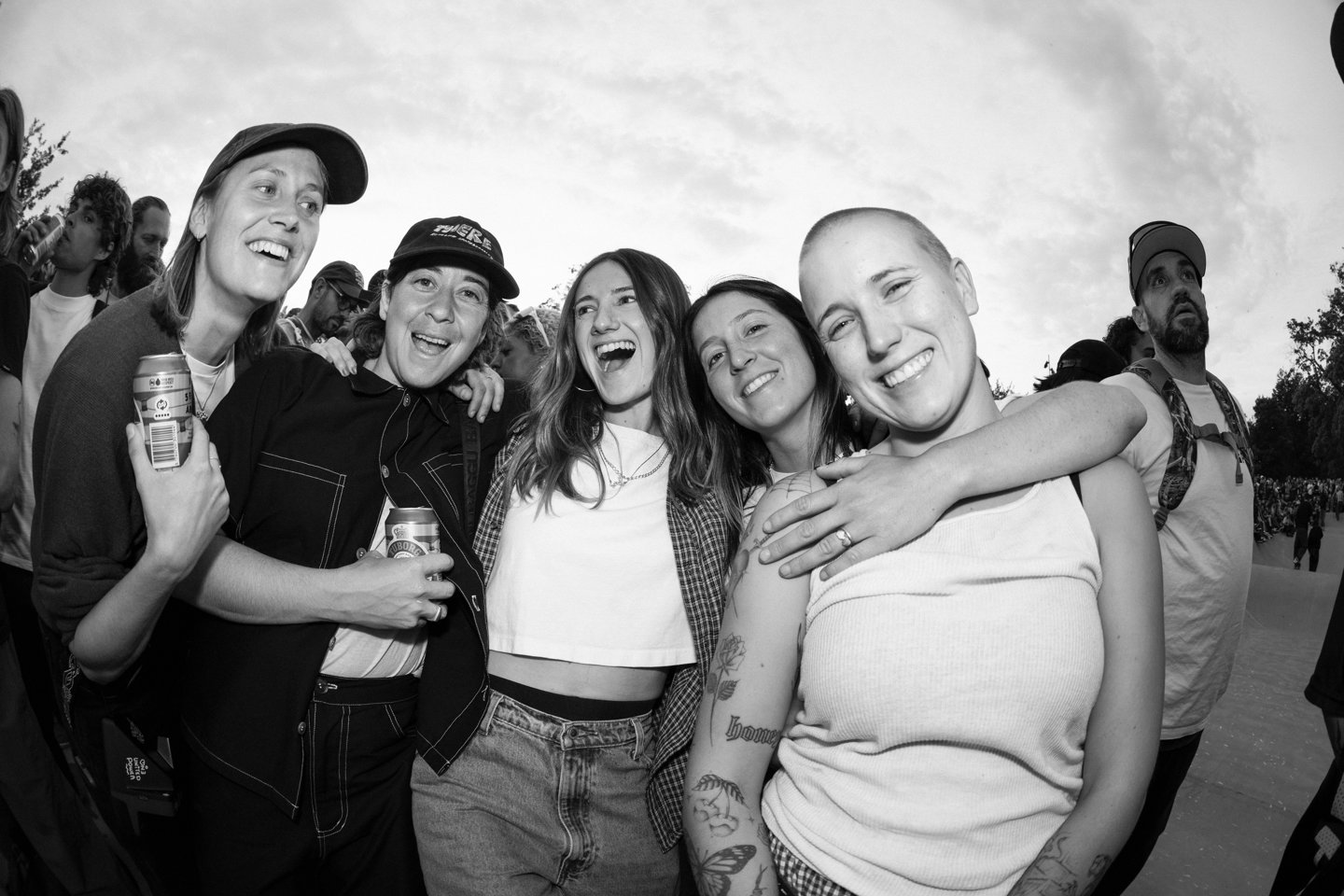
John:
Wow! Okay, that's interesting. For me, I remember having that moment in my head when I was in my early twenties, like I needed to separate out in my head, ‘Why do I skate in the first place? What does it mean to be pro? What are those two different things?’ It's kind of what you're describing.
I think about these self-help tools and strategies that we can use to help ourselves regulate.
We don't always have access to professional therapists and a big part of managing all this stuff needs to be peer support, our own techniques, all that.
It sounds like you were in that heavy schedule for those three years and started to burn out.
So, in that time, when skating wasn’t that thing you used to get away from stress, did you have something else?
Hayley:
Yeah, major burnout. I was kind of clouded. I didn’t even know what to do, because skating is my whole life; I started when I was six. So, I didn't really know what to do.
I mean, there’s little things that I did. I would draw. I would listen to music. I used to play the guitar. But it's like I forgot how to do those things because my judgment was clouded, and I had no idea how to break out of that.
And now I'm still a little like that but it's clearer. I know what I want to do and
I can go to the skate park and be like, ‘Yeah, this is fun.’ But before that, I didn't really have anything else. I couldn't break out of that state. All I would think about is tricks I needed to be doing. It was just little voices in my head that I couldn't push away.
John:
That makes sense.
I’m interested in if you have a routine or anything that you use to help yourself manage emotions and manage stress. Because one of the things I’ve been learning about recently is when we're under stress—and this relates to when you describe feelings like you're cloudy and feeling like you can't think through things—when we're stressed our brains literally deploy resources down into its departments where it's more fight-or-flight brain, and we end up not being able to think clearly.
It's something that happens for survival reasons. Like, when we're in the jungle we don't have time to think about a tiger attack. Or we don't have time to think, ‘Should I pull my hand away from the flame?’ So, there's this part of our brain that's automatic and when we’re stressed, or we feel under threat, our brain automatically goes away from thinking.
Physical activity, like skating or the guitar or drawing, like you said, to get back into the zone, helps you calm down and able to think. So it's interesting to hear you describe that.
With that in mind, do you have a routine or techniques that you use?
Hayley:
So, similar things. I still draw in my downtime. On my iPad on Pro Create. And now I can go out skating. If I feel a bit stressed, or anxious, I'll go for a skate. Or just go for a roll down the street to the shops. It's just little things. I really love driving so I’ll go drive somewhere. Even if it's to a park that's far away it doesn't bother me because I like doing that. It gives you that time.
John:
Another thought I have is based on the Mental Health First Aid course—it’s a course that was developed in Australia—the fourth action item in it is ‘Encourage Appropriate Professional Help’.
Do you have any experience with that? Do you ever do therapy or have you seen counselors, or anything like that?
Hayley:
Yeah, I have a therapist now. But I've gone through psychologists, and psychologists don't work for me because my brain is so active and runs all the time. It's weird. I'll go to a psychology session knowing what I want to talk about. As soon as I get in that room everything goes blank, which is so crazy to me. I don't know why it happens. But then I started doing art therapy. Because I have ADHD, I need to be doing something all the time.
It made it feel comfortable talking. I need to be doing something so, whether it's just scribbling on paper, that's when it got me to open up.
I figured out that that's how I open up easier, and I can just ramble away and talk about what I need to talk about because my brain’s physically running and I’m physically doing something. When I skate, obviously I can't talk, but that's when I can think clearly because I’m doing something. So, when I’m drawing, I can think clearly, and I can talk about what I’m feeling.
John:
That is interesting but also makes sense. It brings me back to this thing I've been thinking about a lot: We think of physical health and mental, emotional health as two separate things. But it's like, ‘Wait! No, this is your brain and your nervous system. These are a physical part of your physical body, mental health, and physical health are one and the same.
Physical activity influences how well you can manage emotions and think through things. Does that make sense?
Hayley:
Yeah, for sure. It took me a while to figure out how to make it work. I'd go through cycles. Sometimes it didn’t work, and I began to think it was a ‘me’ problem.
Psychologists give you things to help, but it was an overload of information. They give you so many techniques at once that my brain could not process that many things. So, like what I said before when I was doing something, that's when I could process and remember these things and go through them in my head.
But yeah, definitely it works for some people and it doesn't for others. It's just figuring out what works for you and not giving up. Just keep going until you find the right one. It takes a while. It may not click instantly in the first session. It takes five to ten sessions for it to feel comfortable.
That's what I found at least.
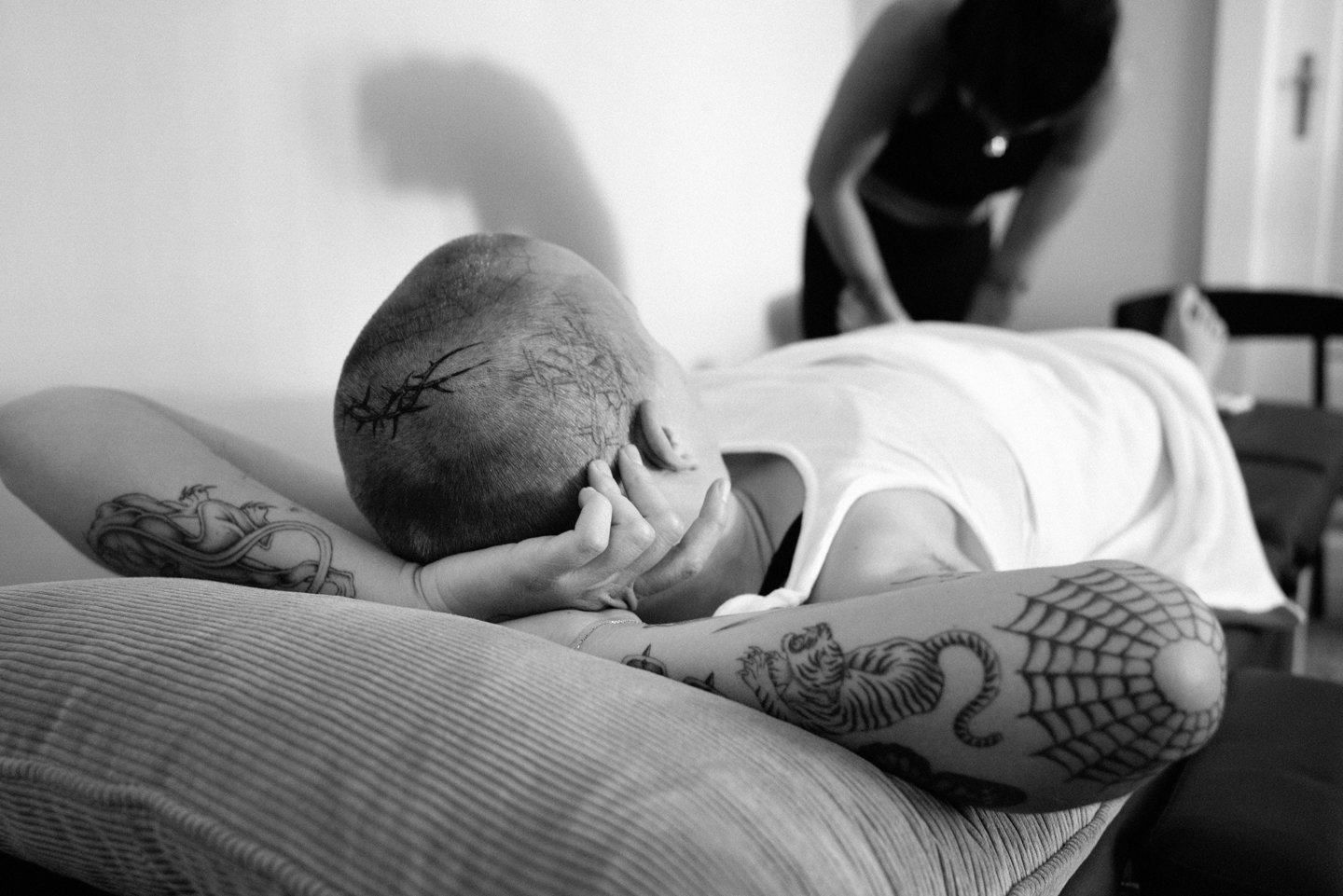
Thank you John and Hayley for continuing our Why So Sad? interview series. Stay tuned for more.
05
22
23
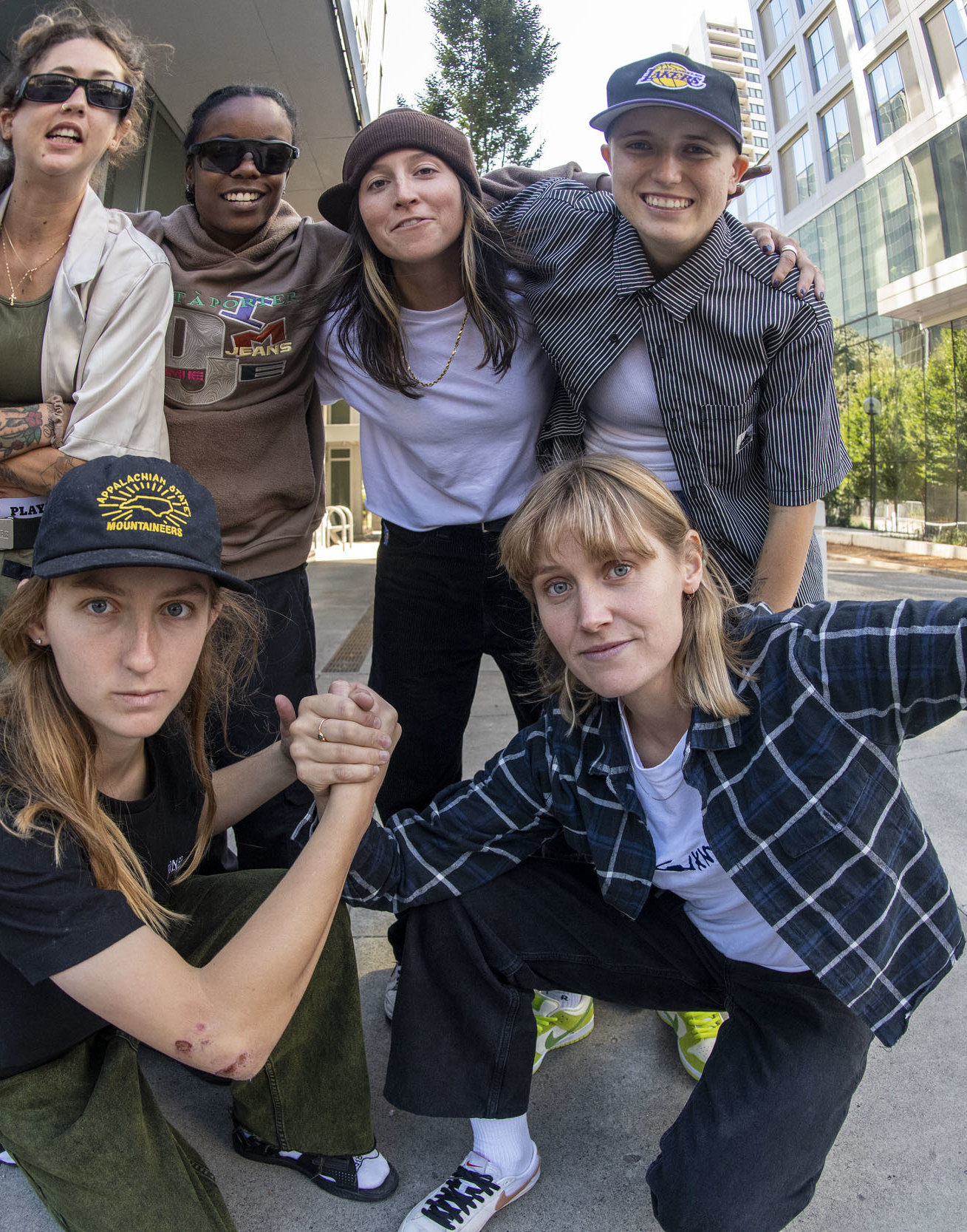
Gassed Up
Check in with Hayley Wilson, Nicole Hause, and Ant Travis on their travels while filming "Gassed Up."
:58 with John Rattray on Why So Sad?
Hayley Wilson
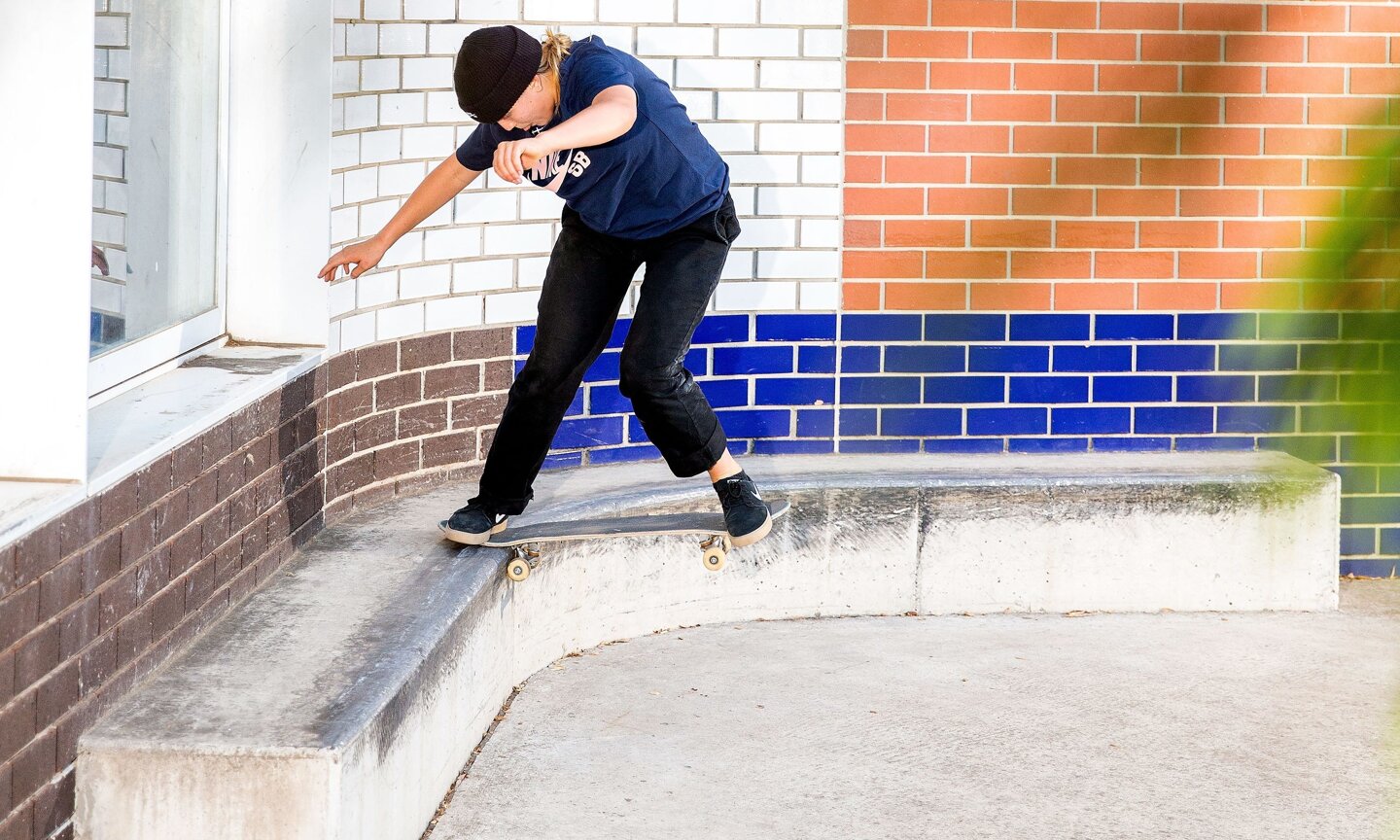
Why So Sad?
The Vault
Load More